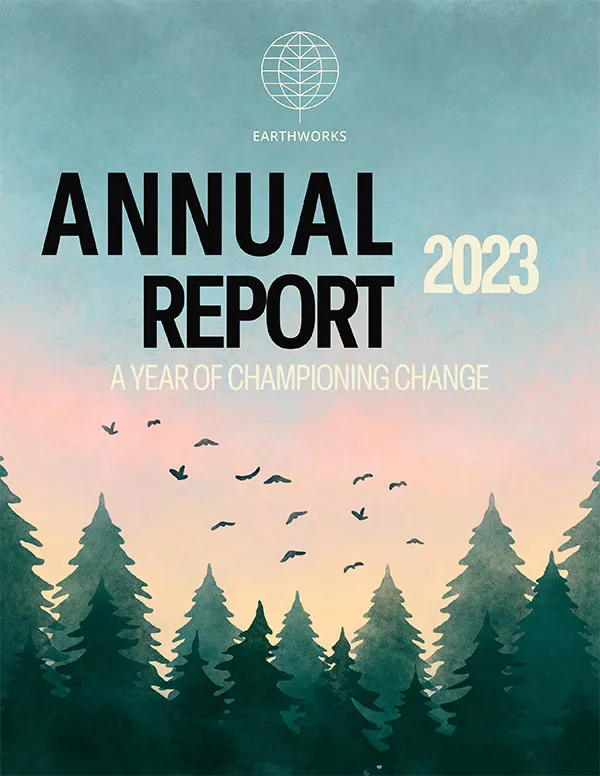Highlights from the Year
Policy Impact
The climate crisis demands the EPA leave nothing on the table when it comes to drastically reducing methane emissions. To that end, Earthworks’ staff including Melissa Ostroff, Pennsylvania Policy and Field Advocate and Kendra Pinto, Four Corners Indigenous Community Field Advocate, delivered testimony for the public comment hearing on proposed rules to reduce oil and gas methane by the U.S. Environmental Protection Agency, on January 10, 2023.
The EPA finalized updates to federal methane regulations in December, which could reduce methane by 58 million tons between 2024 and 2038.
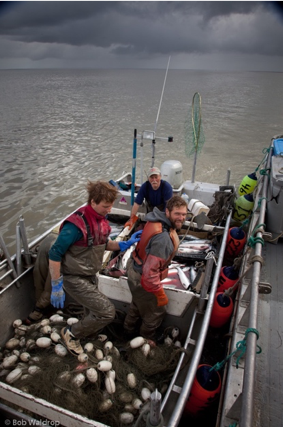
Regulations
In a landmark decision, the EPA used its Clean Water Act authority to protect Alaska’s Bristol Bay from the Pebble Mine project. This action secured the largest and most productive wild salmon fishery on Earth, which generates $2.2 billion annually and sustains 15,000 jobs.
Global Solutions
Earthworks continued to work with community partners, Indigneous and other frontline leaders, and allied orgnizations to engage global leaders on critical initatives and further international climate goals, bringing their voices to the table at a United Nations consultation in Geneva, Switzerland, and COP28 in Dubai.
Accountability
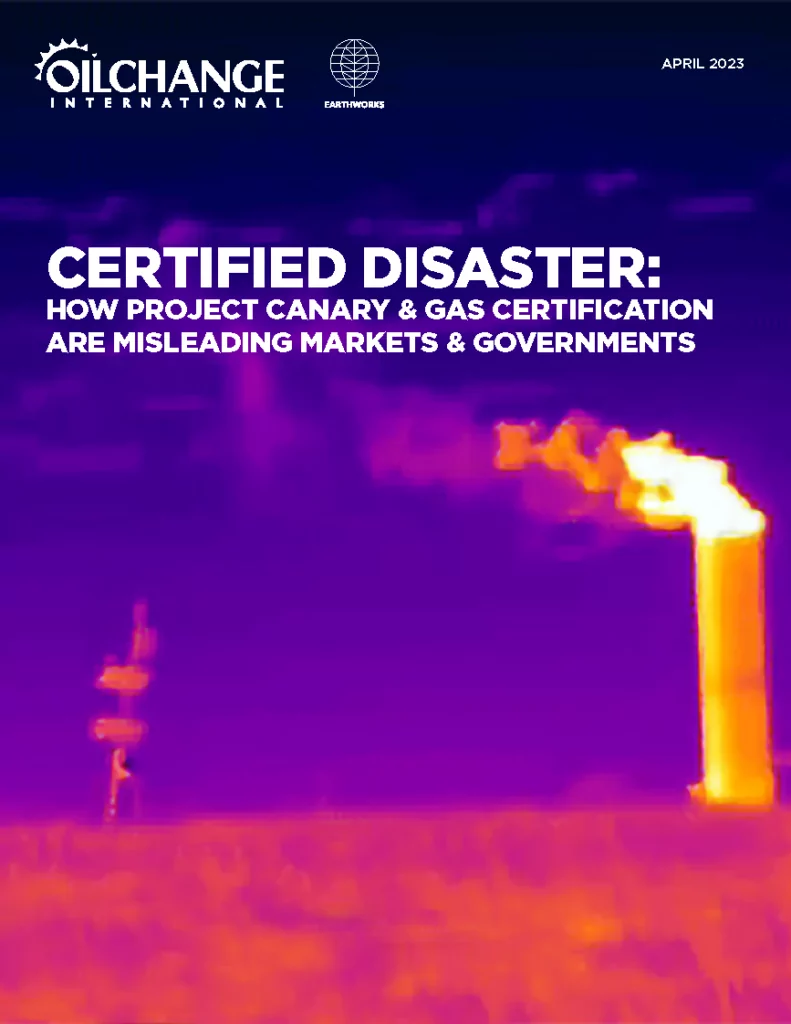
In April 2023, Earthworks released “Certified Disaster,” a report that critically examines the gas certification market focusing on Project Canary’s so-called “Responsibly Sourced Gas.”
Our seven-month survey revealed monitoring systems that consistently failed to detect pollution events and missed significant emissions that were captured by our investigations with Optical Gas Imaging (OGI) cameras.
Project Canary’s marketing promotes its certification as a pathway to achieving ‘net zero’ emissions, a narrative that implies that certified methane gas can align with climate goals, potentially undermining genuine efforts to address climate change. Just months after the report release, Project Canary announced a change to its business strategy and focus.
State Focus
Years of dedicated collaboration with local organizations have led to significant strides in New Mexico at both state and federal levels this year.
In June, the New Mexico State Land Commissioner took a decisive step by banning new oil and gas leases within a mile of schools and day care centers on state trust land. Earthworks is now advocating to extend this protective measure to residential areas and other community spaces.
Further enhancing environmental safeguards, U.S. Secretary of the Interior Deb Haaland enacted a 20-year moratorium on oil and gas drilling within a ten-mile radius of the Chaco Culture National Historical Park, preserving its culturally sacred sites.
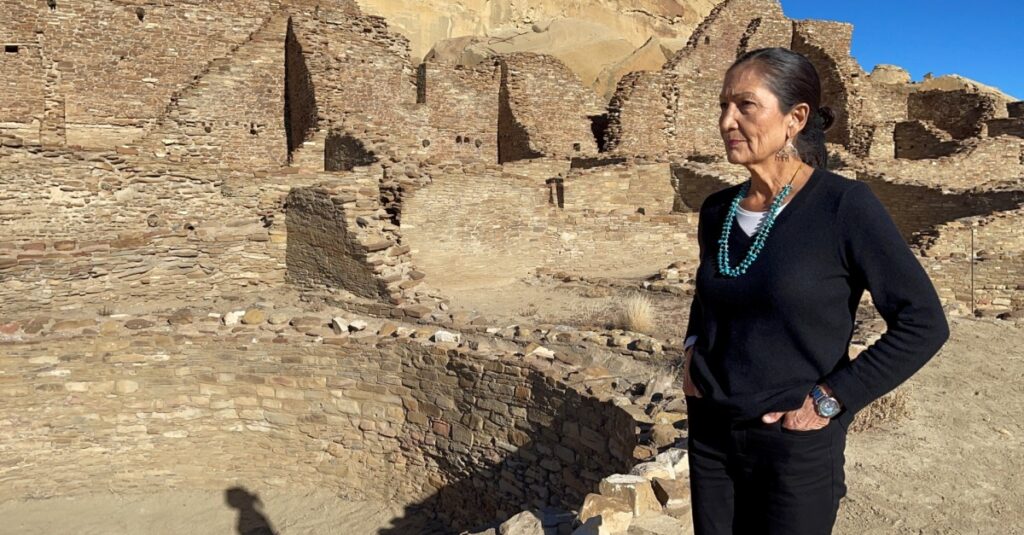
In a move towards corporate accountability, Mewbourne Oil, one of the nation’s largest private oil and gas operators, reached a settlement with the EPA and the state, agreeing to pay a $5.5 million penalty and invest in environmental
improvements.
Informed Consent
Advancing lithium mining initiatives must hinge on the informed consent and active participation of local communities, particularly Tribal communities. This is crucial as a significant portion of EV mineral reserves lie within a 35-mile radius of Native American reservations.
Earthworks is committed to safeguarding these communities’ rights, standing with Tribal communities in Nevada to oppose the proposed Thacker Pass lithium mine, and in California, where we have advocated for a comprehensive environmental review of a novel lithium extraction method proposed for the Salton Sea area.
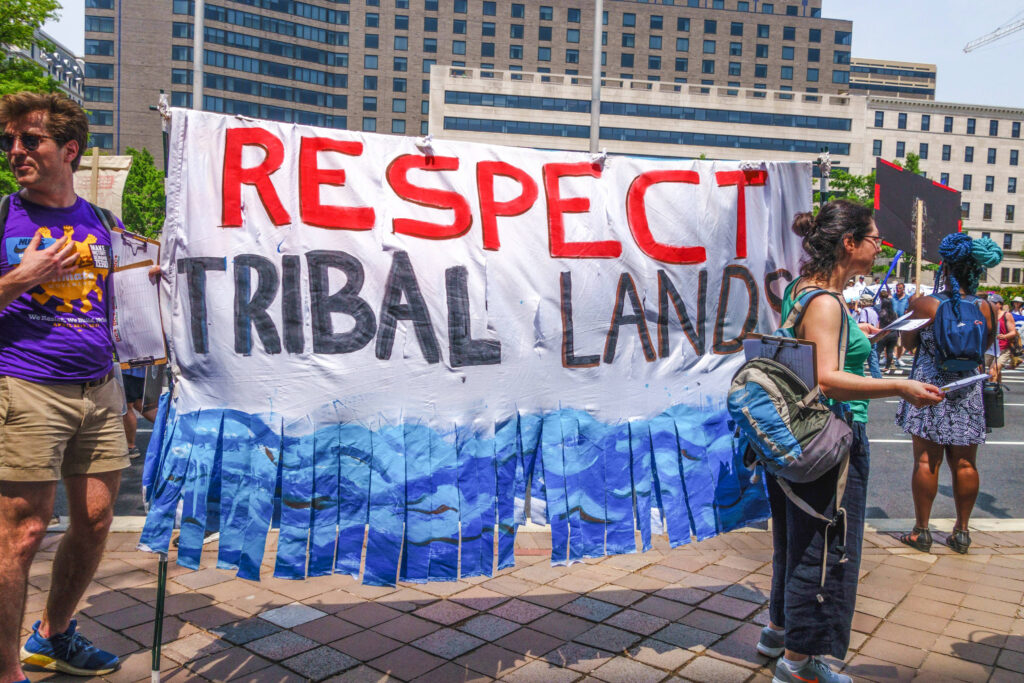
Infrastructure
In July, 130 organizations including Earthworks, signed a letter urging U.S. Transportation Secretary Pete Buttigieg to require his agencies to evaluate the climate impacts of offshore oil and LNG export terminals, particularly in light of new guidelines from the White House Council on Environmental Quality (CEQ). The groups argued that approving additional fossil fuel infrastructure, such as the six proposed deepwater ports off the Gulf Coast, would worsen climate change, lock in decades of high emissions, and violate the Biden administration’s climate goals.
“If the Department of Transportation approves another mega-polluting offshore export terminal, it will push the world closer to climate catastrophe. This administration’s continued expansion of fossil fuels contradicts the promises Biden made to all of us when he said he would tackle the climate crisis.”
Kelsey Crane, Senior Policy Advocate at Earthworks
Strong Standards
In September, Earthworks, along with 35+ community groups, unions, and NGOs, wrote to four organizations – ICMM, the Mining Association of Canada, The Copper Mark, and the World Gold Council – to raise concerns about an industry-led effort to develop a new mining sector audit and certification scheme. The letter emphasized the importance of transparency and accountability in the mining industry, particularly regarding environmental and human rights practices and advocated for stronger human rights due diligence and responsible sourcing laws.
Your Support Makes Our Work Possible
Earthworks helps families on the front lines of mining, drilling, and fracking. We use sound science to expose health, environmental, economic, social, and cultural impacts of mining and energy extraction. To support our efforts, please consider a tax-deductible donation today that will go toward our work reforming government policies, improving corporate practices, influencing investment decisions, and encouraging responsible materials sourcing and consumption.

